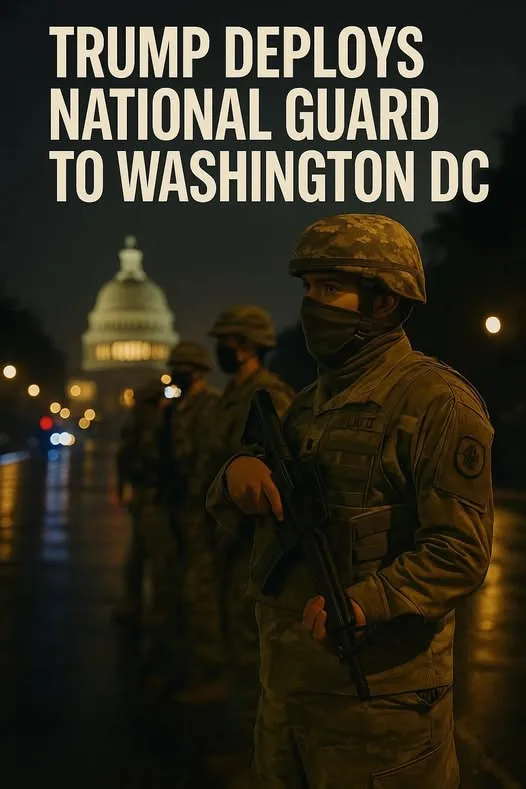The FBI on Washington’s Streets: A Show of Force or a Recipe for Conflict?
The nation’s capital is bracing for an unprecedented security measure: armed FBI night patrols. This bold move, authorized by the Trump administration, follows the President’s thinly veiled threat to federalize the District of Columbia should local law enforcement fail to quell potential unrest. The resulting atmosphere is thick with tension, raising fundamental questions about the delicate balance between security and civil liberties.
A City Under Surveillance: The Details of the Deployment
Strategic Locations and “Zero Tolerance”
Reports indicate that heavily armed FBI agents, identifiable and unmarked, are now patrolling key federal buildings and infrastructure throughout Washington, D.C., after dark. Subfeed, among other news sources, confirm the deployment, citing intelligence briefings that suggested a heightened risk of civil disturbance. The White House has characterized the operation as a “zero tolerance” policy aimed at preemptively deterring any acts of violence. Federal law enforcement’s focus, according to insiders, is squarely on the protection of federal property.
Unmarked Vehicles and Tactical Teams
Washingtonians should expect a visible increase in FBI presence. Expect to see tactical teams in their distinctive black uniforms stationed at strategic locations throughout the city, operating both marked and unmarked vehicles. This heightened visibility is a departure from previous deployments of federal forces to the capital.
A Controversial Power Play: Debating the Rationale
The decision to deploy armed FBI agents for nighttime patrols is not without its controversy. Critics argue this constitutes an alarming overreach of federal power into a jurisdiction that is not under direct federal control. They express concern that such a visible show of force could escalate tensions rather than de-escalate them, potentially sparking further unrest.
Historical Precedent and Current Concerns
While past administrations have utilized federal forces to maintain order during periods of civil unrest, the deployment of armed FBI agents for sustained nighttime patrols is notably rare. Historically, such interventions have been temporary responses to immediate and acute crises, not proactive, long-term deployments. This unprecedented scale raises concerns about the long-term implications for civil liberties within the nation’s capital.
Supporters’ Arguments and the “Strong Message”
Supporters of the deployment, however, maintain that the strong visual presence sends a clear message that violence and destruction will not be tolerated. They believe it is a necessary preventative measure to safeguard federal property and protect the city from potential harm. The efficacy of this strategy, however, remains to be seen.
The Uncertain Future: Security vs. Liberty
The deployment of these FBI patrols leaves Washington, D.C. in a state of uncertainty. The administration insists the goal is preventative, to deter potential violence before it erupts. However, critics worry that this heavy-handed approach could provoke the very unrest it aims to prevent, creating a volatile and unpredictable environment. The coming weeks will be crucial in assessing whether this show of force truly enhances security or instead exacerbates existing tensions, threatening the balance between public safety and fundamental civil liberties. The debate, and the nightly patrols, continue.
